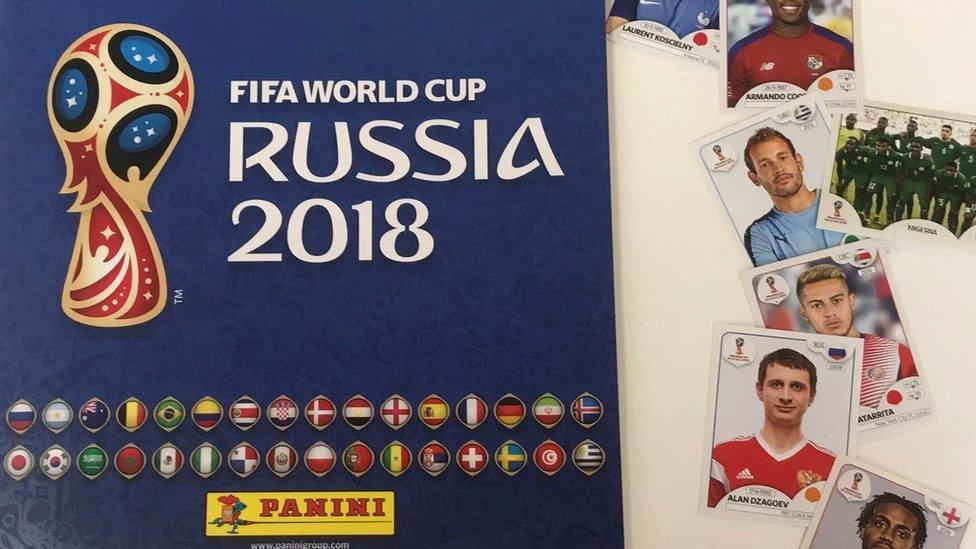Panini: The sticker firm celebrating 60 years
- Published
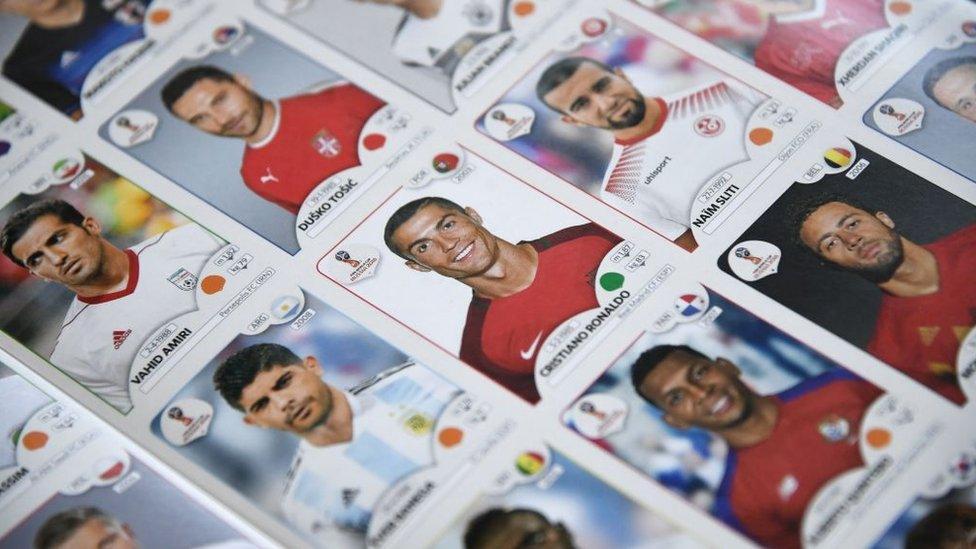
Panini, the football sticker firm behind the playground craze of the 1970s and 80s, is celebrating its 60th anniversary. How did it survive tabloid warfare, a thieving tycoon's clutches and competition from Lycra-clad wrestlers to become a billion-pound business?
Sex scandals, political intrigue and football. All were splashed across the front pages of Britain's tabloids as under-pressure editors battled to outdo each other amid the cut-throat circulation wars of the 1980s.
But as many millions of copies rolled off the printing presses each day, it was not only the struggles of Bobby Robson's England team or terrace hooligans featuring prominently among the inky pages of the Sun and Daily Mirror.
In an effort to tempt readers to part with their pennies, stickers were given away as Fleet Street tried to exploit the phenomenon that had swept through the country's schools.
A face-off between the two newspapers "put Mirror owner Robert Maxwell's nose out of joint", according to sticker expert and author Greg Lansdowne.
"The Mirror did a giveaway with Panini up until the Mexico 86 World Cup album and the collaboration was very good for both parties, but the Sun decided it also wanted to get involved with them and it won that battle.
"For a couple of years Maxwell published a Mirror album as competition. The first one was very erratic. The stickers were packaged by prison inmates who weren't able to randomise the stickers in the way Panini could, while some of the players were in kits from previous years.
"It's a bit of a cult album now as it clearly looks hastily put together. It was no match for Panini. Maxwell wondered: 'How am I going to solve this problem? I'll buy Panini'. And in 1988 he did. That's the type of person he was."
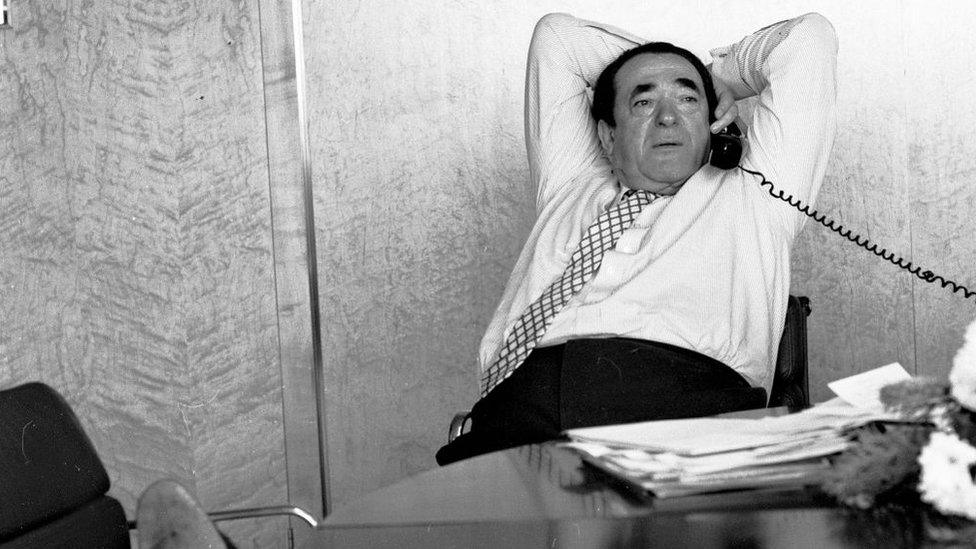
Robert Maxwell mismanaged Panini after taking control in the late 1980s, his critics say
That major business figures should fight over the firm was perhaps no surprise.
By 1987, it was selling 100 million packets of football stickers annually in the UK.
Launched in Italy by brothers Benito and Giuseppe Panini in 1961, the business had grown through the 1970s as it gradually ventured into other European countries.
Initially featuring cards which had to be glued into place, the pastime was revolutionised when the company switched to printing stickers.
Key to getting a foothold in the UK was a tie-up with Shoot magazine which saw one of the country's first Panini-branded albums, Football 78, included free along with a small number of stickers.
"About 500,000 people were buying Shoot so you've got 500,000 copies of your product in the hands of your perfect target audience," explains Essex-based Lansdowne, author of Panini Football Stickers: The Official Celebration, which will be published later this month.
"Football was the area that really made the company's name, but they didn't stop there. They were doing all sorts of syndication and licensing deals.
"Smash Hits had its own sticker album, the Muppets and Flash Gordon would be given away with Look-in magazine, there were motor-racing ones in Tiger comics. The brand was all-encompassing."
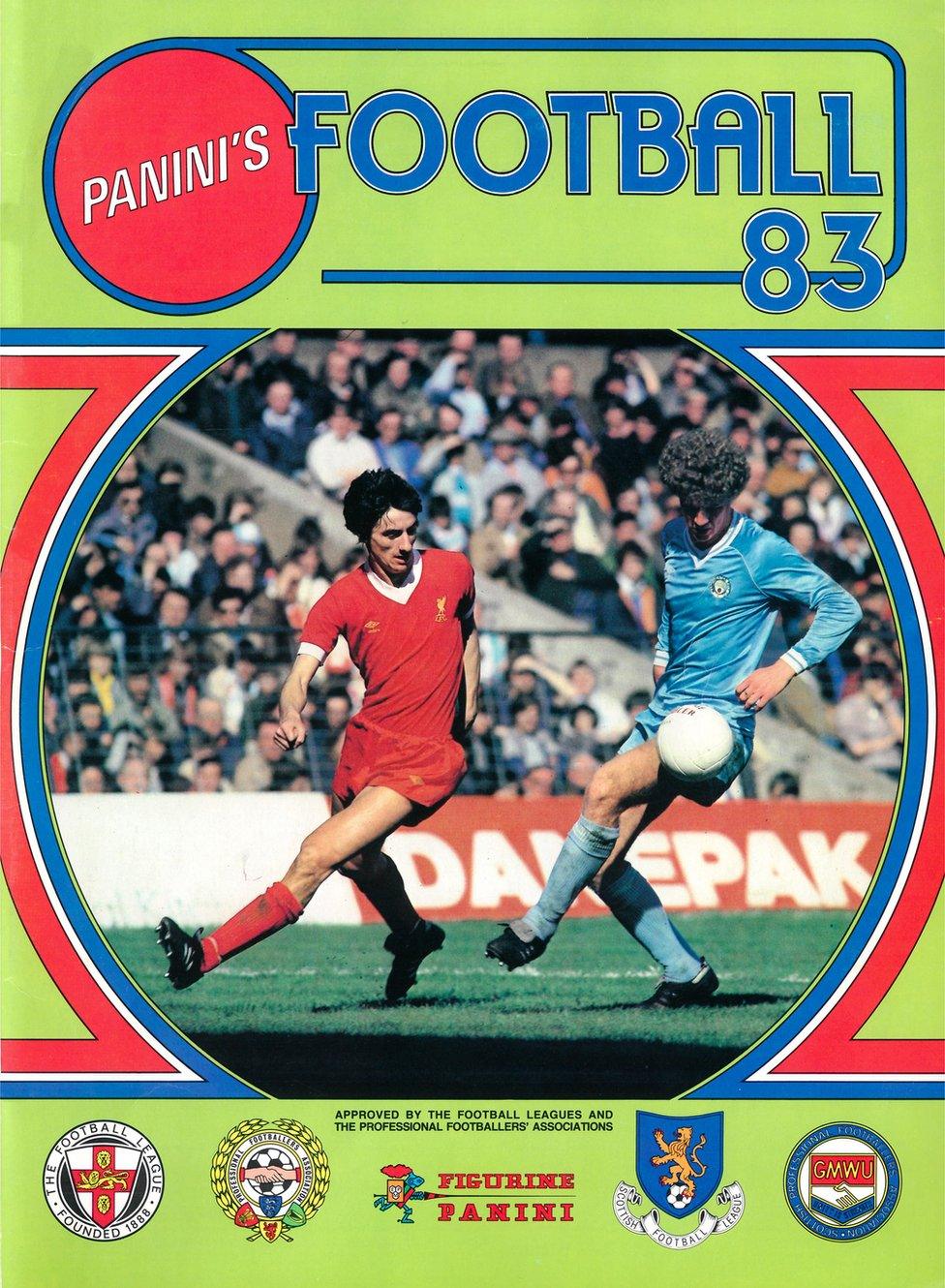
By the early 1980s, Panini had taken a leading position in the UK market
But having become the dominant force across Europe, Panini came unstuck soon after Maxwell's buyout.
As one of the profitable companies in his portfolio, Lansdowne says the mogul was "siphoning the money off to other areas of his business, impacting Panini massively" as he tried to cover debts.
There would be further woes as the quality of its product dropped - even seeing the loss of shiny foil-covered team badges in 1992 and '93 - and sales fell dramatically as the sticker craze entered a downturn with a number of rival offerings "cannibalising" what was left of the market.
As if to highlight its fall from grace, competitor Merlin secured the licence for the Premier League's first official sticker book, published for the 1993-94 season.
Launched in 1989 by four people who had been heavily involved in Panini's success, the upstart firm had almost been bankrupted in its first few months as Maxwell pressured distributors to keep its albums out of shops.
"It was frightening," recalls Merlin's Mark Hillier. "We all remortgaged our houses and took out huge loans as you do when you set up a business.
"Then writs arrived from his organisation. That was his style. He threw money at lawyers.
"I remember going home and saying to my wife: 'I think we're going to lose our house by the end of the week.' We spent a great deal of money defending the case, although it never got to court."
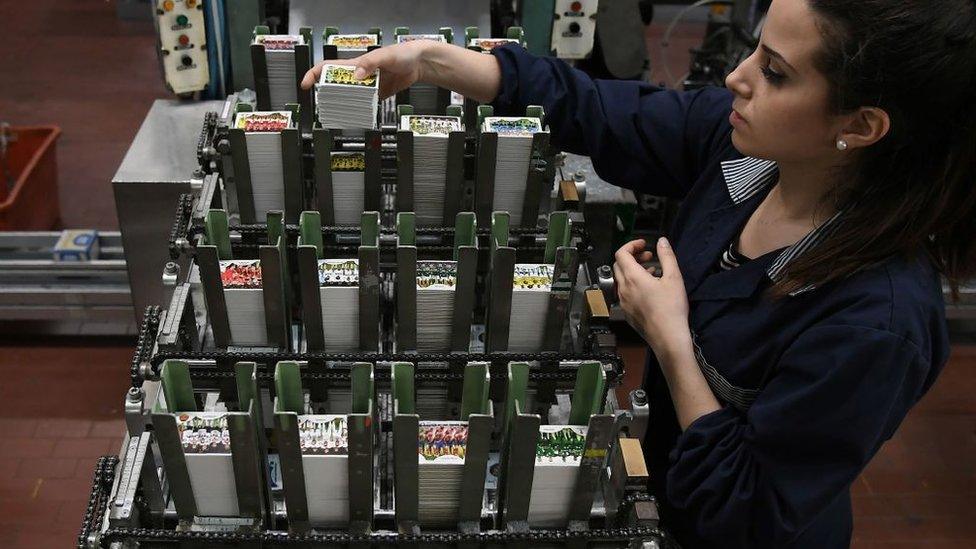
Panini still prints a large number of stickers at its factory in Modena, Italy, where its headquarters are based
An initial sticker collection focusing on the Beano comic put Merlin on firmer ground before further help arrived from a more colourful direction - American wrestlers such as Hulk Hogan and Ric Flair whose exploits were beamed into UK households by Sky's satellite dishes.
"In the early 90s one of my sons would record WWF (World Wrestling Federation) and take the tapes into school to lend to his mates," says Hillier. "It was costing me a fortune as I had to buy so many blank cassettes every week.
"We could see how popular it was and secured the licence.
"On the back of the sticker album we advertised T-shirts and videos that we thought we could sell as a sideline. One morning there was a knock on the door from the postman who said he had 20 sacks of mail in the back of his van.
"We'd got £80,000 worth of orders and this was in the days when people wrote cheques so I had to march into the bank and hand them all over to the cashier to sort out."
The merchandise, not stocked at the time by major retailers like WHSmith and Woolworths, helped repair the damage Maxwell had dealt Merlin's cashflow.
Its tussle with the newspaper mogul came to an abrupt end in November 1991 when he died at sea. Within weeks, it was revealed Maxwell had plundered hundreds of millions of pounds from the Mirror Group pension fund.
In 1995, and by now established as a sizeable player, Merlin's founders sold it to US company Topps for a handsome sum.
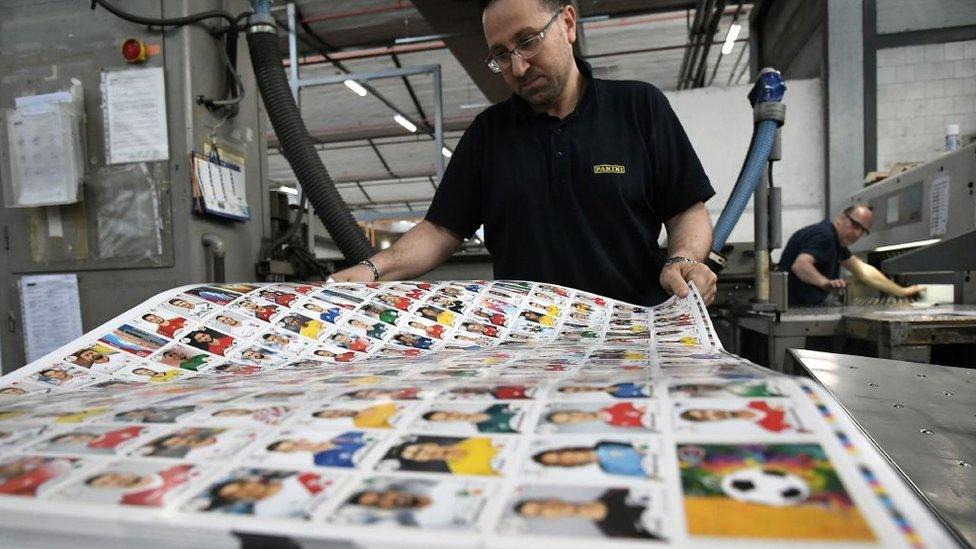
Panini still sells hundreds of millions of stickers annually across the world
Panini, meanwhile, was "like a football being kicked around from one failed business to another", says Peter Warsop, another member of the Merlin breakaway group and who is now at Panini himself as group licensing director.
"Mismanaged" by Maxwell's team, it was sold to comic firm Marvel which then went bankrupt in the mid-90s.
From there, an Italian-led team took the reins and its sticker fortunes turned as adults nostalgic for childhood pleasures began buying Panini's World Cup albums in large numbers from 2006 onwards.
Now selling "hundreds of millions of packets" across 160 countries, Panini's tournament releases are described by Warsop as "unbelievably big business" with much of it stemming from Latin America.
In the UK, the 2019-20 season saw the company release its first official Premier League sticker album having finally won the licensing rights after more than a quarter of a century - but it came at a time when sticker sales were a fraction of their 1980s peak.
Although reluctant to reveal precise numbers, Warsop admits "volumes had gone way down, which is why we got a chance" to take on the contract.
"We need to rebuild that business. The first season with the album was 10 or 12 times greater than what had been done by a competitor prior to that, our second year was well up on that and we expect this third season to be even better."
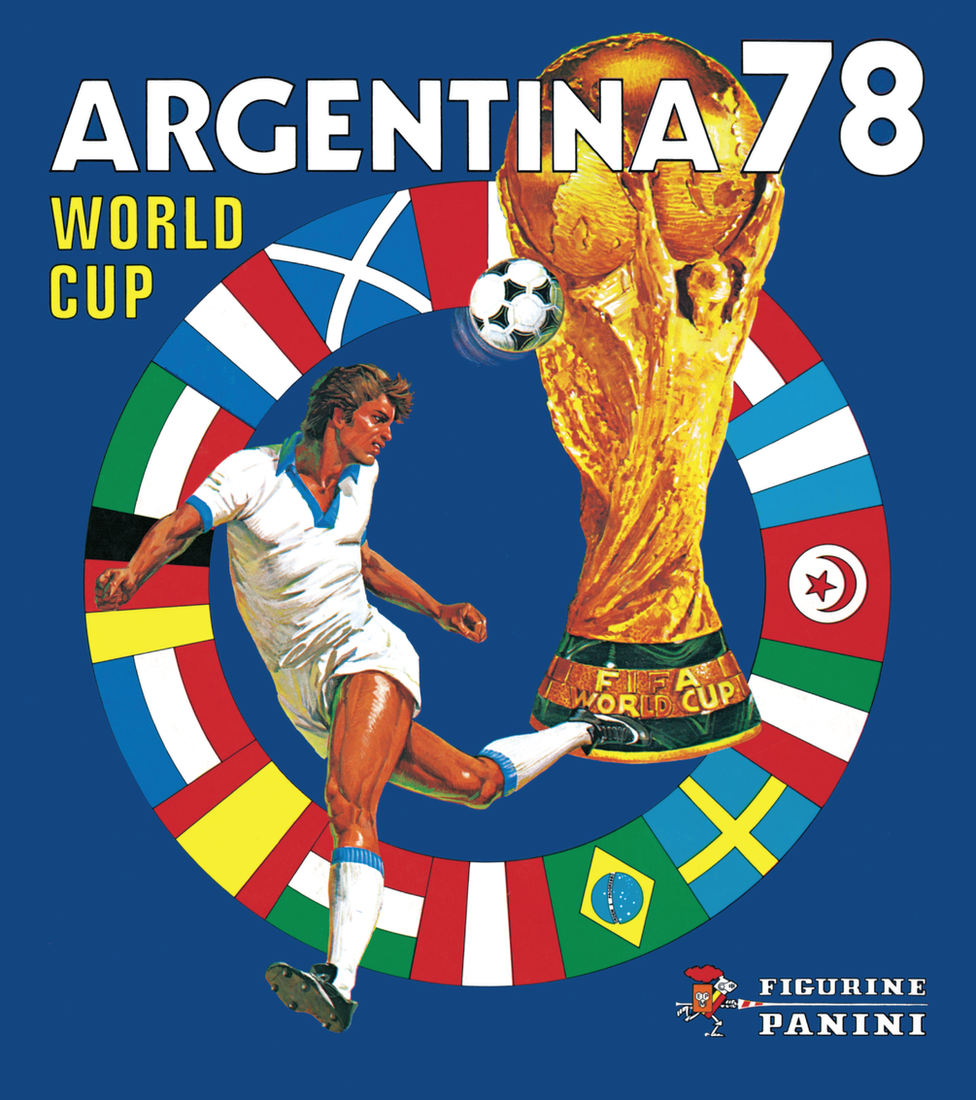
Panini's World Cup sticker albums were an immediate hit when they were launched in the 1970s
Sales have been boosted by what he refers to as "mature collectors" - 30 and 40-somethings whose love for the hobby was rekindled as they dug out old albums during pandemic lockdowns.
The term also incorporates hardcore enthusiasts willing to spend thousands on individual stickers and the well-established pursuit of sports trading cards, with which Panini is also now heavily involved in North America.
Big-money deals for NFL, NBA and Major League Baseball cards are nothing new, but football items have begun attracting the attention of collectors and earlier this year a mint-condition 1979 Panini sticker featuring Diego Maradona sold at auction for $555,000 (£413,000).
"People go chasing those rare cards and stickers either because they want to own it or because they know they can sell it on the secondary market," says Warsop.
"You think, 'how is it possible a Maradona sticker that we printed millions of in the 1970s can sell for such a figure?' but it's simple. They're so rare now.
"If you got that sticker at the time it would go into your album. If you were lucky enough to get a second it would probably go on a school exercise book and a third on your bedroom wall or mirror."
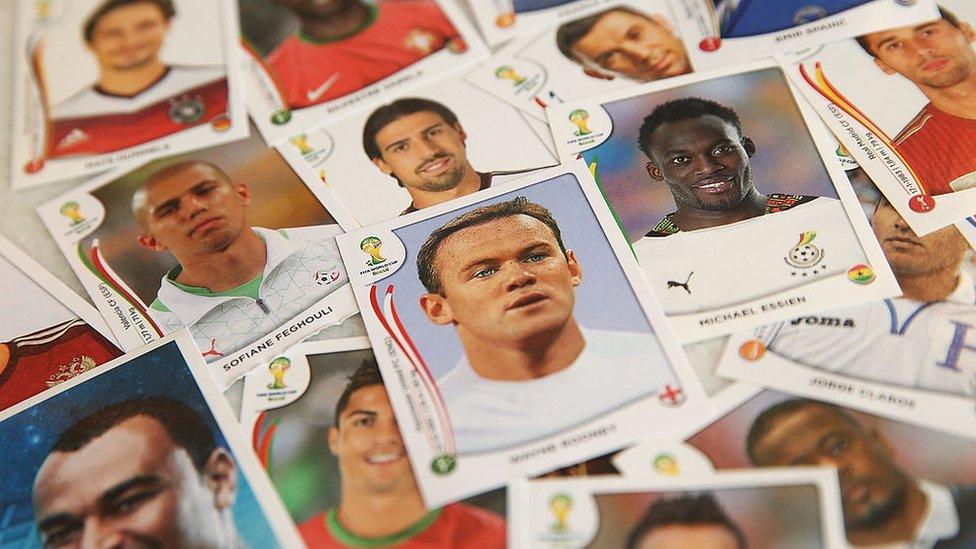
The 2014 World Cup album saw England players in plain white shirts as Panini did not hold the team's licensing rights
In constant battle with rivals such as Topps and Fanatics as each looks to secure an advantage, staff in countries far and wide are tasked with identifying "the next big thing".
"Keeping up with kids' interests is quite a job," Warsop says.
"It's not just sport that does well for us though. We also have a lot of entertainment licences such as Harry Potter and L.O.L Surprise!, which have been huge.
"Producing sticker albums and trading cards seems quite simple to the average guy in the street, but there has been a lot of intrigue and manipulation over the years. It's been an exciting ride."
Related topics
- Attribution
- Published2 May 2021
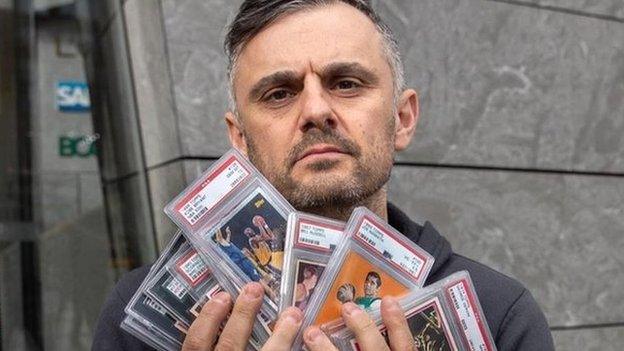
- Published2 July 2019

- Published28 March 2018
